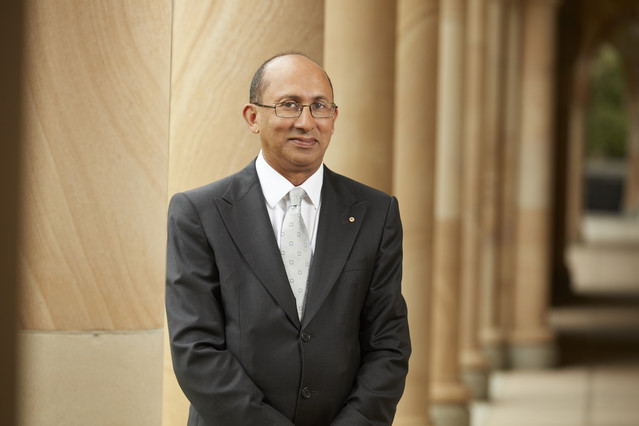“If universities are to remain valuable institutions in the 21st century… the members of the campus community will need to preserve the college campus as a sanctuary for serious debate of unorthodox ideas and avoid succumbing to the temptation to make them echo chambers of orthodox creeds.”
From Speak Freely: Why Universities Must Defend Free Speech, by
Keith E Whittington.
Freedom of speech on campus has attracted much attention recently. In 2018, the government appointed the former Chief Justice of the High Court of Australia, Robert French, to review the issue. Mr French consulted broadly, including with UQ, and submitted his report in March.
His observation that there was no evidence, based on recent events, to fit the description of a ‘free speech crisis’ on campus, was welcomed generally across the higher education sector.
Freedom of speech is of course an issue for all of us, not just for universities. Suggestions that Australian universities are shutting down free speech or that we face a free speech crisis at our universities are, in my view, exaggerations. But the concept of free speech, of listening to diverse views, of revisiting the foundations of our shaping ideas and values, go to the core of the role of a university to
search for truth.

My own experience of UQ in the mid 1970s was that debate and discussion enriched my education and expanded my world view. They exposed me to a range of perspectives and challenged me to construct and defend arguments. I learnt that dogma is contestable, and that I must interrogate – and at times amend – my beliefs. Although Queensland was governed by a premier famous for repressing dissent, and UQ was home to some of his most trenchant critics, it seemed to me that free speech flourished on our campus.
Today’s students may have different concerns and preoccupations to my generation but the value of debate and of listening to views we may not share has not diminished. It remains essential to an open mind, which in turn is the foundation of all knowledge.
Freedom of speech is rightly cherished but it has never been absolute. It is framed and constrained by the requirements of the law and also by university policies, codes and agreements. For instance, under UQ’s enterprise agreement, staff have rights to “express unpopular or controversial views, although this does not mean the right to harass, vilify or intimidate other persons or groups or to demean alternative points of view”. And the Student Charter asks that students “treat other members of the University community with respect and courtesy”.
These are the common-sense ground rules of civil discourse. But they too have their limits. Our duty of care to staff or students does not, for example, extend to protecting them from ideas that they might find uncomfortable or even confronting.
I am personally disturbed by trends such as “trigger warnings”, which have been adopted by some American universities. Universities should never ban ideas, even bad ideas. The best way to deal with bad ideas is with good arguments. How else can we nurture intellectual resilience in our students?
Peter Varghese AO
Chancellor



